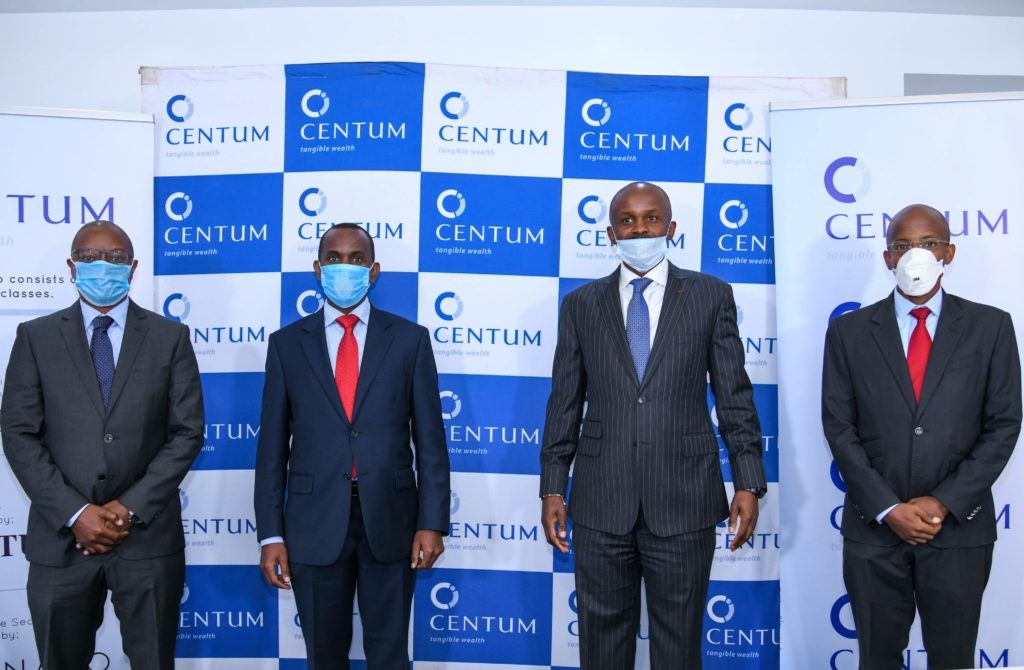Centum Reports 79pc Growth in Profit After Tax for FY20, Declares Kes 1.20 Dividend

Investment firm Centum Group has recorded Sh7.4 billion after-tax profit for the year ended March 2020 – representing a 79 per cent jump earnings.
Total income increased 33.74 percent to Sh15.86 billion in the year ended March 31, the first of a five-year ‘Centum 4.0’ strategy in which the company is focused on building a strong, debt-free balance sheet, enhancement of liquidity and cash generation by the portfolio companies.
Centum Group CEO Dr. James Mworia says the performance sets a strong foundation for the remaining four-year strategy period, especially after the company announced the repayment of all its medium and long-term debt within 14 months of commencement of the new strategy.
Centum on June 8th 2020 announced that it had fully repaid an outstanding amount of Sh6.6 Billion on its five-year corporate public bond, while in September 2019 the company paid off USD 75 Million (Sh7.8 Billion) of a US Dollar denominated debt.
“This deleveraging will save Sh1.8 billion in annual finance costs, which will further enhance the Company’s future performance and dividend payout,” said Dr Mworia.
Centum’s four main business units; Private Equity, Real Estate, Marketable Securities and Development, all recorded a strong performance in the year.
The Group completed the disposal of its equity stakes in Almasi Beverages Limited, Nairobi Bottlers Limited, and King Beverage Limited respectively, thereby realizing a net gain of Sh12.6 billion.
“The Almasi Beverages and Nairobi Bottlers sales achieved a combined average Internal Rate of Return (IRR) of 31 percent over the last ten years, demonstrating our track record in growing shareholder wealth through an optimal investment strategy, active portfolio management, and successful exits,” said Dr. Mworia.
As part of its strategy to enhance liquidity, the Group held Sh9 billion in marketable securities and cash deposits at 31 March 2020, approximately Sh6.7 billion higher than the prior-year liquidity position.
This portfolio was significantly boosted in October 2019 following receipt of proceeds from the sale of beverage businesses, and it is structured to minimize the risk of capital loss while generating annuity cash flows which contribute to additional liquidity for the Group. The bulk of it (90 percent as at March 31) was held in fixed income securities and interest-earning cash deposits, realizing a cash investment income of Sh450 million over the past 12 months.
“The enhanced liquidity further provides us with a platform to take advantage of available opportunities in Private Equity and in public markets under the current market conditions,” said Dr. Mworia.
In its Real Estate portfolio, the Group is pursuing a sales-led development model and is currently constructing 1,442 residential units across its three mixed-use developments. Of the 1,442 units under construction, 999 units with a revenue potential of Sh7.8 billion, had been sold as at 31 March 2020– representing a pre-sale level of about 70 percent.
Over 426 of the units under construction are projected to be complete and handed over in the current financial year ending 31 March 2021. Customers have already paid 27 percent of the expected revenues and approximately Sh5.7 billion in receivables will be collected progressively. However, profitability on the units will be booked progressively over the coming financial years as they are handed over to the owners.
The Covid-19 pandemic has cast a shadow over the global economy, but Centum sees this an as opportunity to make investments at reasonably priced valuations and ride the growth in earnings and market valuations as economies recover from the pandemic and companies go back to their sustainable earnings levels under normal operating conditions.
“As we enter the economic recovery cycle Centum’s strong liquidity and balance sheet position has put it in a strong position to take advantage of investment opportunities that will emerge given the significant corrections that have taken place on valuations of even very strong companies, the growing need by companies to shore up their equity capital positions and the general capital flight from frontier and emerging markets to developed markets,” said Dr Mworia.

